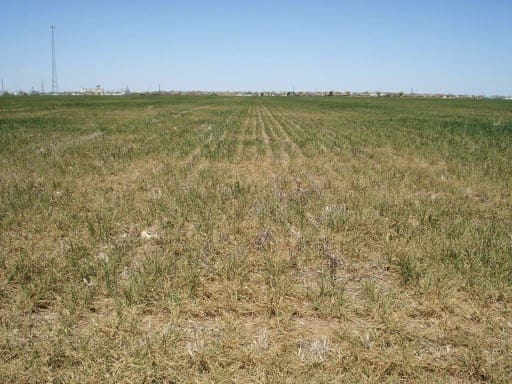CROP farmers grappling with drought could be taking on 100 per cent of their production risk if they suffer through another summer of extreme weather, according to the latest Market Overview report by insurance brokerage Gallagher.
 The sharp rise in storms and bushfires in recent years has seen insurers continue to retreat from agricultural products now deemed too risky for their business models.
The sharp rise in storms and bushfires in recent years has seen insurers continue to retreat from agricultural products now deemed too risky for their business models.
This means crop growers who are already underinsured could face significant personal losses if they experience another bad season.
Gallagher managing director – specialisms, Paul Harvey, said that for insurers the uptick in adverse weather events combined with the fallout from the Financial Services Royal Commission had spooked the sector.
“Like the banks, who have pulled back from lending to ‘risky’ borrowers, insurers are taking a more disciplined, actuarial approach to claims histories, often going back 10 years or more. This means some growers can’t access any insurance for their income producing crops, or if they can secure insurance cover then it is limited to a few named perils which often aren’t their most critical production risks,” he said.
“If we see significant losses this year – from plantation fires, storms or other weather events – we may see an exodus from the few underwriters and insurers who remain in the sector.
“This puts the gross value of crop production in Australia of $29.3 billion under threat.”
Mr Harvey said the problem was not going away any time soon.
Climate statistics released by the Bureau of Meteorology reveal this past financial year has been drier than average across the country.
Total rainfall was 24 per cent below average, making this past year the driest since 1970, while temperatures soared above average. This year has been the second warmest on record.
“Cotton growing in northern New South Wales and south Queensland are being significantly impacted by the dry conditions, and we’re seeing similar issues in horticulture and viticulture,” Mr Harvey said.
With little or no water in the dams, irrigation farmers have significantly reduced planted areas with many unable to plant crops at all this year. For growers with permanent plantings, the cost of water has significantly increased.
Mr Harvey said the next disaster season meant particular risk for an uninsured grower.
Farmer and Sunland Agriculture Director, Tim Watson, at Hillston in southern New South Wales is one example.
“The drought, combined with the current Government policies around water, means farmers such as me are having to plant high value ground crops, to be able to maximise our return from the small amount of water we have. However, this significantly increases the risk for us as we cannot insure the ground crops at all,” he said.
Mr Watson has made the decision to not insure any of his crops this year, due to the very small area he can set aside for growing insurable crops such as cotton or corn.
Instead, he has to give priority to uninsurable ground crops such as beetroot. Subsequently, the amount it costs to cover the insurable crops versus the returns such a small crop would offer mean it is not worth it.
Mr Harvey said specialist crop growers needed to work with insurers towards a solution.
“Growers that are able to purchase insurance and are struggling with lower crop yields and revenue should take a close look at the structure of the cover they’re buying and try negotiating higher excess levels before resorting to other cost-saving measures like reducing values,” he said.
“There is an opportunity for new or existing insurers to redesign insurance policies and develop products which will fill gaps and create new insurance coverage options for the agribusiness sector.”
Source: Gallagher
The Gallagher H2 2019 Market Overview report can be accessed in full here

HAVE YOUR SAY